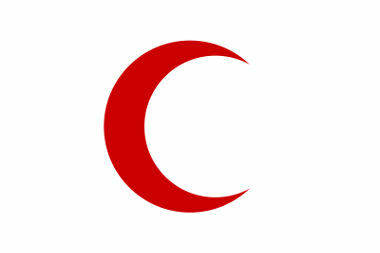THE Red Cross – or, more specifically, the International Red Cross and Red Crescent Movement – is a humanitarian organization not linked to any State or government that was created to assist and provide urgent relief to people who are victims of armed conflicts and natural disasters. In day August 8th, commemorates the anniversary of the creation of this organization, which took place in 1863 and, since then, it has won three Nobel Peace Prizes, in 1917, 1944 and 1963.
♦ Origin of the Red Cross
Swiss businessman Henri Dunant (1828-1910) is considered the founder or one of the main people responsible for the origin of the red cross. In the year 1859, while on a business trip, he witnessed a conflict between troops belonging to Austria and France, in the so-called Battle of Solferino, which generated a large number of deaths and injuries. Faced with this shocking reality, Dunant felt the need to promote neutral aid to this type of situation, publishing the work three years later. A Remembrance of Solferino
, which portrayed what had happened and suggested the creation of international humanitarian organizations to help the wounded.Henri Dunant's work had a great repercussion throughout Europe given the notorious problem it addressed. Thus, the Swiss government appointed him to lead a commission that would aim to make the humanitarian proposals he elaborated viable. That would have been the origin of the Red Cross. The curious thing is that Dunant, from a millionaire, became bankrupt and even begged, having recovered with the help of admirers of his work and, later, being awarded the Nobel Peace Prize in 1901.
The main milestone of the Red Cross was the holding of its Conference in 1864, a year after its foundation, in the city of Geneva. At this meeting, the entity's basic principles were defined, such as neutrality and the commitment to provide humanitarian medical assistance to both sides of the same conflict, regardless of personal convictions and ideological. Another decision was the creation of the symbol in the form of a red cross, which was not well accepted by the population Islam, which later adopted the Red Crescent symbol to represent this organization.

In Islamic-majority countries, the organization is represented by the Red Crescent
♦ Principles of the Red Cross
The actions of volunteers from this organization are based on seven fundamental principles, namely:
1) Humanity – assisting all the wounded on and off the battlefield in order to minimize human suffering and promote respect and peace among peoples.
2) Impartiality – not considering nationalities and ideologies as criteria for providing assistance, which must be given to each and every person in the same manner and efficiency.
3) Neutrality – restrict the performance only to the promotion of medical and humanitarian aid, so as not to take part or an official opinion on any aspect of the facts.
4) Independence – guaranteeing the entity's governmental independence, in order to preserve its full autonomy from the laws and impositions of the States.
5) Volunteering – the work must be of voluntary and disinterested help, that is, without obtaining individual or collective profit.
6) Unit – the red cross cannot be divided or organized into non-cohesive groups. Thus, each country can only have a single company linked to the entity.
7) Universality – the duty of the red cross is to act all over the world, without territorial restrictions or option for certain places of action.
The Red Cross is extremely important and has saved millions of lives around the world. Altogether, there are more than 90 million volunteers spread across all areas of the globe. In Brazil, the organization was founded in 1908, but was recognized by the organization's international committee only in 1912.
By Me. Rodolfo Alves Pena
Source: Brazil School - https://brasilescola.uol.com.br/datas-comemorativas/cruz-vermelha.htm

